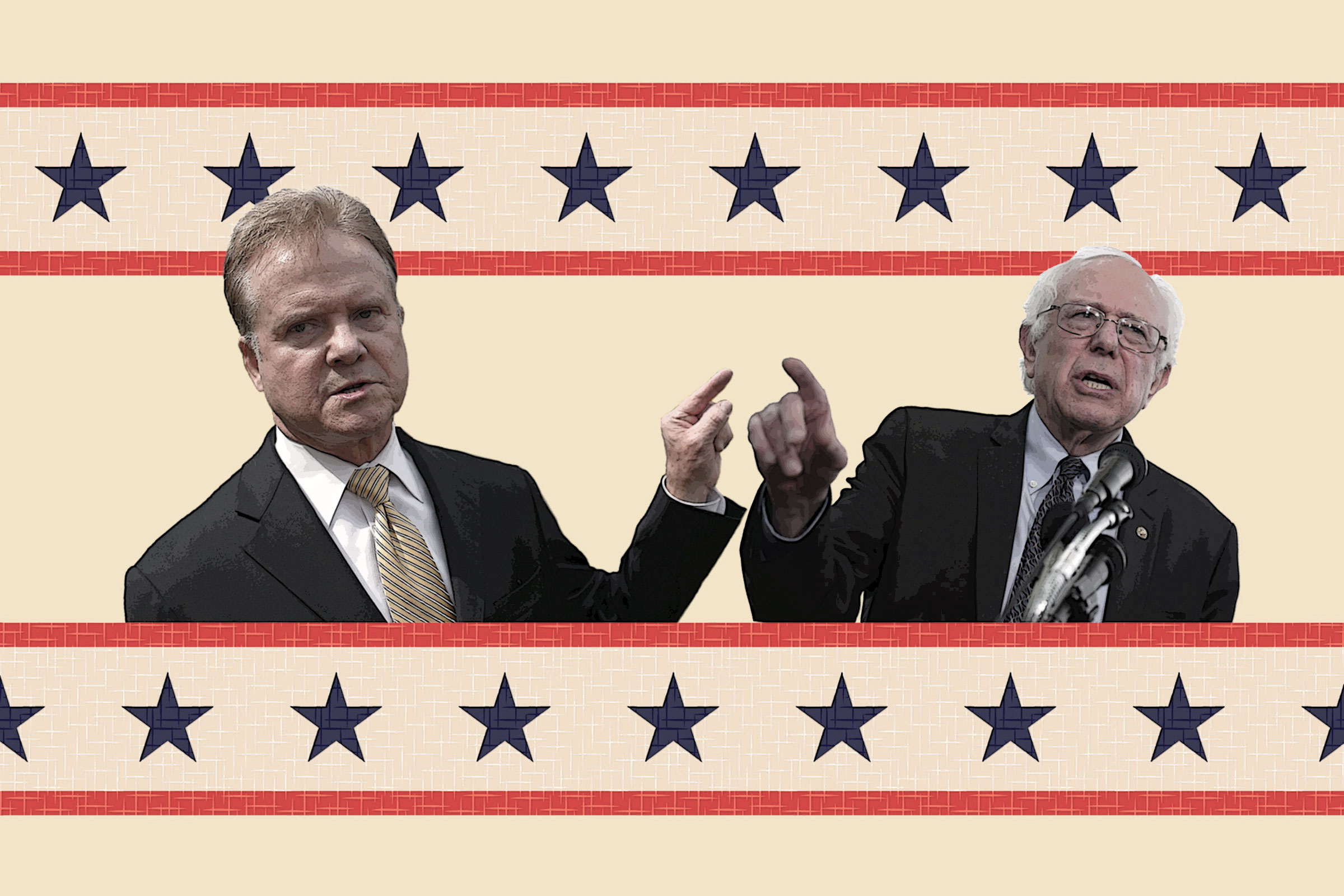Why Jim Webb and Bernie Sanders should have a presidential debate — without Hillary Clinton
A Lincoln-Douglas-style face-off could have great benefits for the Democratic Party — and the country


A free daily email with the biggest news stories of the day – and the best features from TheWeek.com
You are now subscribed
Your newsletter sign-up was successful
The Republican presidential contest increasingly resembles a three-ring circus. There is such an overabundance of candidates that — unless the powers that be adopt something like this modest proposal from yours truly — the first debates may end up excluding credible contenders (such as Ohio Gov. John Kasich) before they've had a chance to introduce themselves to the voters.
On the Democratic side, the situation is reversed: Instead of too many candidates, there are too few. Hillary Clinton maintains such a commanding lead in polls, money, and institutional support that most of her opposition is best understood as a form of protest. And the Democratic National Committee is doing its best to limit the potency of that protest by scheduling only six debates and requiring all participants to only debate one another in DNC-approved venues and formats.
In fact, it is probably too late for Democrats to have a debate about who should represent them in the presidential contest. While I've argued in the past that the Democrats' bench is stronger than is usually assumed, it's nonetheless true that, in the unlikely event that Hillary Clinton implodes on the campaign trail — or gets struck by a piece of falling masonry — there's no other candidate manifestly willing and able to quickly unite the party and lead it to victory. The DNC knows this, and the other announced and potential candidates know this. Which is why, if the DNC gets its way, the Democratic primary debates will have the inhibited quality of contests in which most contenders know they aren't allowed to win.
The Week
Escape your echo chamber. Get the facts behind the news, plus analysis from multiple perspectives.

Sign up for The Week's Free Newsletters
From our morning news briefing to a weekly Good News Newsletter, get the best of The Week delivered directly to your inbox.
From our morning news briefing to a weekly Good News Newsletter, get the best of The Week delivered directly to your inbox.
Let's hope the DNC doesn't get its way.
Rather than participate in a kabuki version of candidate selection, the party — and the country — would be best served if the most serious challengers to Hillary Clinton abandoned the DNC process, and debated each other.
With Clinton off the stage, no longer sucking up the oxygen and turning every debate into a discussion about how well she handled it and what it means for her candidacy, the other candidates would be liberated to have a no-holds-barred argument about what the heck the next president should actually do.
I'd particularly like to see a series of one-on-one debates between Sen. Bernie Sanders of Vermont and former Sen. James Webb of Virginia. Neither candidate has a very plausible shot at the nomination, Webb because of his Coriolanus-like aversion to actual politics, and Sanders because, well, he's a self-proclaimed socialist. But for that very reason, both should be free to speak their minds — something both are able to do very articulately.
A free daily email with the biggest news stories of the day – and the best features from TheWeek.com
Moreover, while they appear to hail from opposite ends of the party ideologically speaking, their critiques of the dominant neoliberal center have some elements in common. Both are deeply concerned about the rise of inequality and the alienation of working-class Americans from political life. Both have expressed skepticism of an overly corporate-focused approach to domestic policy and a foreign policy consensus that is overly belligerent. And both are implicitly critical of a party that makes a shibboleth of identity politics, while being far less full-throated in support of measures that would benefit a wide swathe of Americans, but would challenge powerful, entrenched interests. While I'd expect to see a lot of disagreement in any debate between them, it might be even more educational to see how often they turn out to agree.
Educational — and politically important. One major challenge the Democratic Party has today is how to satisfy an increasingly restive, educated liberal base, while also reaching out to recapture downscale white voters. From a cultural perspective, Sanders represents the former while Webb represents the latter. If they turn out to agree on some large questions of policy — and disagree with the party establishment on those same questions — might the establishment actually take notice? Might Hillary Clinton herself?
Abraham Lincoln was not running for president when he debated Stephen Douglas on the question of slavery — he was running for Senate, which is to say, campaigning for Republican control of the Illinois state legislature. But those debates laid the foundation for his presidential campaign, and for a reorientation of American politics and ultimately of American history. A series of Webb-Sanders debates would be unlikely to propel either man toward the White House. But they might be our best hope this season for an honest and open debate about the future of their party. And, for that matter, of our country.
Noah Millman is a screenwriter and filmmaker, a political columnist and a critic. From 2012 through 2017 he was a senior editor and featured blogger at The American Conservative. His work has also appeared in The New York Times Book Review, Politico, USA Today, The New Republic, The Weekly Standard, Foreign Policy, Modern Age, First Things, and the Jewish Review of Books, among other publications. Noah lives in Brooklyn with his wife and son.
